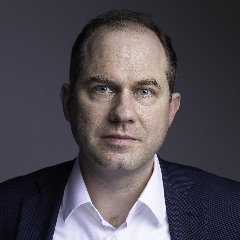You are not currently logged in. Please create an account or log in to view the full course.
The Historical Debate
- About
- Transcript
- Cite
Cold War - The Escalation of the Vietnam War, 1963-65
In this course, Professor Andrew Preston (University of Cambridge) explores why the United States decided to escalate the Vietnam War. In the first module, we look at the historical debate surrounding the US’s involvement in the Vietnam War. In the second module, we focus on the two assassinations that occurred in the period leading up to the US’s escalation of the Vietnam War, namely that of the President of the Republic of Vietnam, Ngo Dinh Diem, and the President of America, John F. Kennedy. In the third module, we look at the escalating events themselves, before in the fourth module turning to consider the pressures that caused the US to escalate the war in Vietnam. In the fifth module, we question the extent to which domestic politics influenced Lyndon B. Johnson’s decision to involve the US in Vietnam, then in the sixth module, we offer our concluding remarks regarding why the US decided to escalate the Vietnam War.
The Historical Debate
In this module, we look at the historical debate surrounding the US’s involvement in the Vietnam War, focusing in particular on: (i) the term ‘long 1964’, and how historians have used it as a framework for studies of the period when the US escalated the Vietnam War; (ii) how the Vietnam War differs from other wars that the US has been involved in; (iii) the image of Lyndon B. Johnson (LBJ) as a warmonger: David Halberstam’s ‘The Best and the Brightest’ (1972); and (iv) the revised image of LBJ.
Cite this Lecture
APA style
Preston, A. (2022, October 17). Cold War - The Escalation of the Vietnam War, 1963-65 - The Historical Debate [Video]. MASSOLIT. https://massolit.io/courses/the-escalation-of-the-vietnam-war
MLA style
Preston, A. "Cold War - The Escalation of the Vietnam War, 1963-65 – The Historical Debate." MASSOLIT, uploaded by MASSOLIT, 17 Oct 2022, https://massolit.io/courses/the-escalation-of-the-vietnam-war

